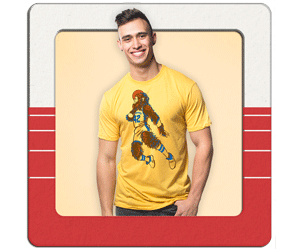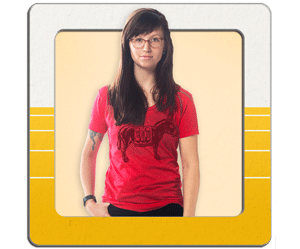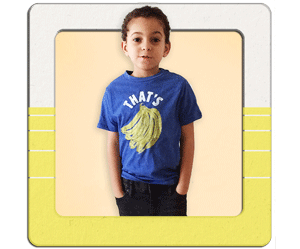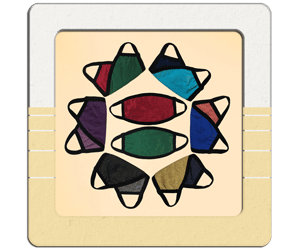Shop

Achier Mou
January 10, 2013 11 min read
Saying “life is good!” with a bright smile may seem like an unlikely refrain from someone whose beloved homeland is embroiled in war and turmoil. For Achier Mou, a “Lost Boy of Sudan”*, experiencing brutal attacks, disease and starvation have bred neither radicalism nor hate, apathy nor depression. Rather, Achier works calmly and steadily towards his goals of alleviating suffering -- always with a gentle demeanor and quick smile. After literally walking across whole countries in Africa, he walked through his BA at UVM, and earned an MPH from Tufts University, always with the aim to help his motherland. Achier has served people in the US through working in nursing homes and group homes, and helped to found and run SUDEF, an NGO providing desperately needed medical care in S. Sudan. Between speaking at rallies and UN conferences, and working to support his relatives, Achier still makes time to laugh, play sports and empathetically listen and care for his many friends and loved ones. Achier was recently hired to return to S. Sudan to run a medical-training institute and headed back to his homeland in November. If you like the shirt that Achier is rocking you can buy it here. 100% of the profits will be donated to SUDEF.
* “Lost Boys of Sudan” is the name coined by aid workers for the group of 20,000 children, mostly boys, who were separated from their families in the early 80s due to attacks by the northern government on what was then southern Sudan. Achier was approximately five when his village was burned and looted, people killed and kidnapped. The conflicts resulted in over 2 million southerners killed. With a group of other young children, Achier walked from his village, through war-torn Sudan, to a refugee camp in Ethiopia. Along the way, nearly half of the children died from disease, attacks, drowning or starvation. In Ethiopia, the kids started school, but in 1991 they had to flee again, walking back through Sudan to Kenya. Achier lived in the Kakuma refugee camp in Kenya for ten years, until being resettled in Vermont, USA. In 2011, the country of South Sudan was born, gaining long-awaited independence from the North; but years of chronic neglect, attacks from the north and politically-motivated tribal divisions led to instability and violence. Recent conflicts have resulted in 10,000 killed, over 4 million internally displaced, and hundreds of thousands at risk of starvation, including many, many children. A SUDEF-run clinic, one of the few working medical facilities, serves around 35,000 in an area encompassing 11 villages.1) What first impression do people get of you, is it accurate?
Hmm, I have not observed that. Could I excuse myself [from this question] in the spirit of doing an experiment? Haha, just kidding. Well, once I was in a mall and someone took my picture (presumably because I look different) but they were embarrassed when I noticed, and I was like, “It’s okay, if you want to take my picture, just ask, you don’t have to hide.” So, usually people are curious. They want to know who I am, where I am from, what do I do, so we talk. What tends to surprise people is how hard I work, for example I am currently logging 70-80 hours a week at two jobs. I am involved with SUDEF and a bunch of other community activities. (Though at the times when I’ve been unable to support myself, I can’t put as much time into volunteering as I’d like).
2) What are your biggest passions in life and how have they influenced your chosen path?
I’ve always had interests on the health side due to some of the things that I’ve encountered early on in my life. Like when I was a little child I lost my sisters to preventable diseases. The idea that many childhood diseases are preventable-- that’s what gets me. I have also suffered some preventable diseases, but after I learned about them I reduced the chances of getting sick. An example is malnutrition. The last time I was malnourished was when I was a teenager in a refugee camp. I was going blind – well, night blindness -- and I was also anemic. Vitamin tablets were available where I was, provided by the UN. So after I learned about the causes, I got the vitamin A tablets and I could see again.
In the Kenyan refugee camp curriculum there was a subject called Home Science and that’s where I learned about basic healthcare . . . the ironic thing is we would learn about kwashiorkor [protein deficiency causing stomach distension, brittle hair, etc.] and then after class we could diagnose a kid right away in the camp. Of course, in times of food shortage there might be nothing people can do [to prevent malnutrition], but sometimes education and outreach can help. Another big issue was/is preventable diseases like diarrhea. If my parents knew something more, or there had been medical clinics, maybe my sisters would be alive, and other children who died would be alive. So that’s where my issue is: if there is something that can be done about it, we need to do it!
3) Was this something you knew early on, something you unexpected discovered, or something that is still being revealed to you?
As kids in the refugee camp, we would go to the UN-run clinics if we were sick and a doctor or a nurse would treat us. I thought it would be good to be able to treat people too when I grew up. So, I wanted to be a health worker or maybe a teacher. In the camps, especially with parents not there, we were fending for ourselves. Some of our leaders emphasized education and I was determined to get myself educated. I had a plan to finish high school and then go to look for my mother and brothers (my dad and sisters had already died, but I didn’t know about the others). So, after 11 years in the camps, without my family, I thought about just leaving [Kenya] to go look for my mom; but since there was still fighting in my country, in order to be safe, I’d need to have a gun. So, chances are, if I had gone back to Aweil (my town) I would have had to join the S. Sudanese rebels, because at that point the Northern government was still killing any southerners they thought were educated. Anyway, all those plans changed when I was given a chance to come to the US. So I decided to continue my education with the goal of later returning to find my mother and working in public health.
4) Tell us one of your most funny or memorable stories related to the pursuit of your passion?
When I first came to the US, nobody thought that we [the group of “Lost Boys”] knew anything, nobody thought we had gone to high school. I thought we knew English, but we were told, “no, we can’t understand what you’re saying”. We used to think that it was “British English,” but I have come to see that it was not true. It had to do with accents, because the way I pronounced words was mixed up with local dialects, the accent was heavy, it was HEA-VY [laughs]. So, anyway, I was working as a janitor, it was a night job at the University of Vermont because I couldn’t get a job that required more education. We were in GED classes during the day, and at night while working, sometimes I’d hide in the broom closet to study for the GED. Finally, after taking the GED, the caseworkers who thought we had not been to school saw our scores and changed their minds. That is what I want to throw in their face! [laughs] But seriously, I think it’s important to listen. If somebody says they have some ideas, give them the chance -- the human spirit is . . . what is a word . . . no matter how down and out one may be, there is no reason to believe that that is how it is going to stay. People raise above all the challenges that they may be in. I was once poor. And now I can’t call myself poor. My relatives in S. Sudan want me to buy them cows, and I could buy them now if I wanted to, but back then [as a child] we were really poor.
5) What have been your greatest influences, such as books, music, or role models?
I think it has to do with all the kids I grew up with -- the Lost Boys and some of the things they have done over the years really inspire me. I have friends who have earned their Masters, PhDs, one I recently talked into doing public health. My friend Bior, he started a DNA lab in S. Sudan to help reunite people with their families. The lab was recently bombed, and so it’s gone, but he still hasn’t given up. Also, one of the health workers at the SUDEF clinic was killed, but the others keep going, that is their strength. My friend and the Director of SUDEF, Abraham Awolich is really inspiring. He is now running the clinic there, despite the dangers. In 1980 when he left home there was one lucky kid that had a mother still with him, and she would cover her child up at night. One night Abraham was cold and he was sleeping next to that kid and he switched places with the boy when he was asleep, and the mother covered him up instead. Stories like that build your spirit -- it’s sad on one hand, but at the same time it just highlights the situation and inspires me to keep going. Also, besides the other Lost Boys, I’m inspired to access opportunities. I have not forgotten that, I never saw myself going to college, but when I had access I took the opportunity.
6) What fears or challenges did you face pursuing your path and how did you overcome them?
The conditions that we were living in as kids were of course a huge challenge. I was starving at times and we were in constant danger. You were seeing kids who were dying from diarrhea. At some point it was like, “am I gonna be next?” There were times I would get sick and I would wish my mom was there, and well, she was not there . . .. Before we were separated, back in my village, my dad had just died. The soldiers who attacked our village burned down everything we owned: grain, the few animals we had, everything was gone. Here was someone (my father) who had struggled to put together something for his family, and someone else came and destroyed it. It was all gone. And we (me and my brothers) were asking him for food, we were hungry! My father developed some condition all over his body, feet swelling, etc. I have come to think some of the psychological trauma may have suppressed his immune system. I wish we had stopped asking him for something to eat, maybe that would have helped; it might have reduced his stress [long pause]. He didn’t have any option for treatment; and now, now, in S. Sudan that hasn’t changed much, and that is what’s killing me.
In terms of my own coping mechanisms to deal with the trauma I faced, some of it might just be personal, just how I am, or may be it has to do with how we were raised as young children. We were raised to be tough, if something bad happens, you view it as part of life. If there was a child who was bullying you, your father would take your hand, go to that kid and you’d have to fight them and straighten them out. Also, we got punished severely – any adult could beat any child. It’s really hard to say that the way we were raised was right, because while it may have prepared me to cope later, I don’t believe children should be exposed to that kind of punishment. I know that such violence doesn’t help anyone. You can fight all day and you only get a black eye . . . well, you couldn’t see a black eye on me [chuckles] but you get the idea.
7) Any lessons/words of advice on finding and staying on your path; or in order words, is there something that society tells us, that you now know is bull shit?
From day to day we didn’t know if we would be attacked, we didn’t know if someone would give us food or if we’d find water. Because things were so unpredictable, we were forced to live in the moment. Living in the moment tends to take away stress, like the Buddhists say. I still follow this, even in the US.
Also, not to give up. I was separated from my mom when I was five, it had been 20 years and I hadn’t seen her and didn’t know if she was alive, but I didn’t give up hope. I had graduated college, and the government of Sudan had been killing people in Darfur, which is where I’d thought my mom had fled to. Other Lost Boys had found out about their families but I didn’t have word at that point. Everyday I wondered about her. Finally, while working in a nursing home in VT, I got word that she and my brothers were alive. I can’t even describe what that is like, unbelievable. Later I was able to go back and see her for the first time in so long. I never lost hope and my dream came true.
8) What are your main goals for the future?
The goal has always been helping people back in villages to have some basic knowledge so they can live a healthier life, giving the people the tools they need to make informed decisions to stay healthy so they can pursue their individual and social goals, which in turn makes everything easier. I recently got appointed by the government of S. Sudan to go back to my village and be the director of a training institute, which will train health workers. This is a dream come true. I will start by doing an assessment and then the first class will have 100 students. I am leaving my life in Boston to go back to S. Sudan very soon. When I left my village as a child my dad had just died and there was no access to healthcare – you get sick, you have no place to go, no treatment centers, none. So the work that SUDEF is already doing, running clinics where people can get treated, that already takes away some stress, and hopefully the people I will train and more SUDEF projects can continue this.
I’ll probably be living with my mom when I start in S. Sudan. I am gonna be Mommy’s boy. When I met her for the first time after 20 years she said, “Wow, you’re so big” and I said, “Yes, but you can still take care of me”, and she laughed and said, “you have to take care of me now!” She said she missed that she’d not gotten to take care of me for most of my childhood, and I said I never got to be the kid and tell her everything all the time like kids do: “Mom, so and so did this, Mom, this and that happened today!” so I can still do that now . . . We still have a family
9) Outside of the path you chose, if you could have pursued one other career, what would it be and why?
I actually want to do some teaching and community radio broadcasting. After I get the health institute running, I plan to start a community radio program. Since there is very little access to any media there, people are not informed about disease outbreaks or violence, or basic healthcare or what is happening around them and in the world they live in. I want to be a voice for people that lack one, an advocate for people who can’t advocate for themselves. I’m sure people were advocating for me when I had no voice, now I feel like I can get up and get people to listen to me.
10) If you could spend a weekend anywhere in the world, where would you go and why?
Don’t I have the option of just sitting back and taking it easy? There are places people go to, but I’m not so big with that, I tend to just be contented with just hanging out with people that I know and that I care about. I would just want to be in the village and taking it easy there, ‘cause in the village you get to know everyone, sort of like in Vermont. Now I’m in Boston and I don’t even know the people living downstairs . . . it’s pretty . . . well. . . it’s not good. You don’t know if they are creepy or if there is something fishy going on. So that’s why I like smaller places, where I know people, I can walk and visit you.
Leave a comment
Comments will be approved before showing up.






